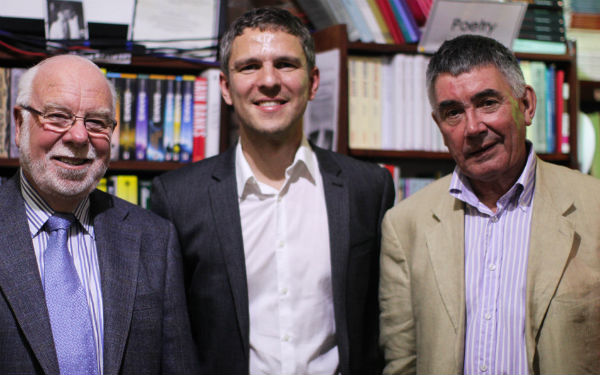New Book Examines the Implementation of the Good Friday Agreement
Posted on: 16 November 2015
Unionists’ and nationalists’ mutual insecurities repeatedly derailed peace implementation, according to the author of a new book which explores the promise and limits of the Good Friday Agreement entitled Politics and Peace in Northern Ireland – Political Parties and the Implementation of the 1998 Agreement.
The book, written by Dr David Mitchell, Assistant Professor in Conflict Resolution and Reconciliation at the Irish School of Ecumenics, Trinity College Dublin at Belfast, provides an up-to-date political history of Northern Ireland since 1998. It analyses the strategies and fortunes of the five main political parties, showing how they tried to shape the course of peace implementation and how implementation shaped the fates of these parties.

The book was launched at an event in No Alibis bookshop, Botanic Avenue, Belfast, on Thursday, November 5, 2015, at 5.30pm.
Politics and Peace in Northern Ireland is a penetrating and accessible examination of the post-settlement experience of a region widely regarded as an international beacon of the possibilities of peace. Drawing on extensive original research, this book explains the promise and limits of the Good Friday Agreement. It also explores post-Agreement Northern Ireland through the eyes of each of the five main political parties and reflects on the likely direction of parties and politics in the future.
In the book, author Dr Mitchell provides a fresh theoretical account of the conflict and post-1998 politics which foregrounds how the ‘extremes’ sustained and nurtured each other and shows how and why unionists’ and nationalists’ mutual insecurities repeatedly derailed peace implementation.
Dr Mitchell commented: “Northern Ireland after 1998 was complex – and contradictory. The political moderates who sealed the Good Friday Agreement lost local public support. Paramilitary groups were on ceasefire yet highly active. Extremist parties increased in popularity but scaled back their demands. Northern Ireland was peaceful yet divided. The book sets out to explain these contradictions, and argues that despite remaining tensions, politics will stay on its path away from violence and exclusion.”
The book was launched by Paul Arthur, Professor Emeritus in Politics, Ulster University. In his remarks Professor Arthur praised the book as being ‘full of verve and insight…a significant contribution to the literature of the Troubles and to the general field of peace and conflict studies’. He noted that the book was ‘imbued with a guarded optimism’ that was reminiscent of Dietrich Bonheoffer, whom he quoted: “The essence of optimism is that it takes no account of the present…it enables a man to hold his head high, to claim the future for himself and not to abandon it to his enemy”.
